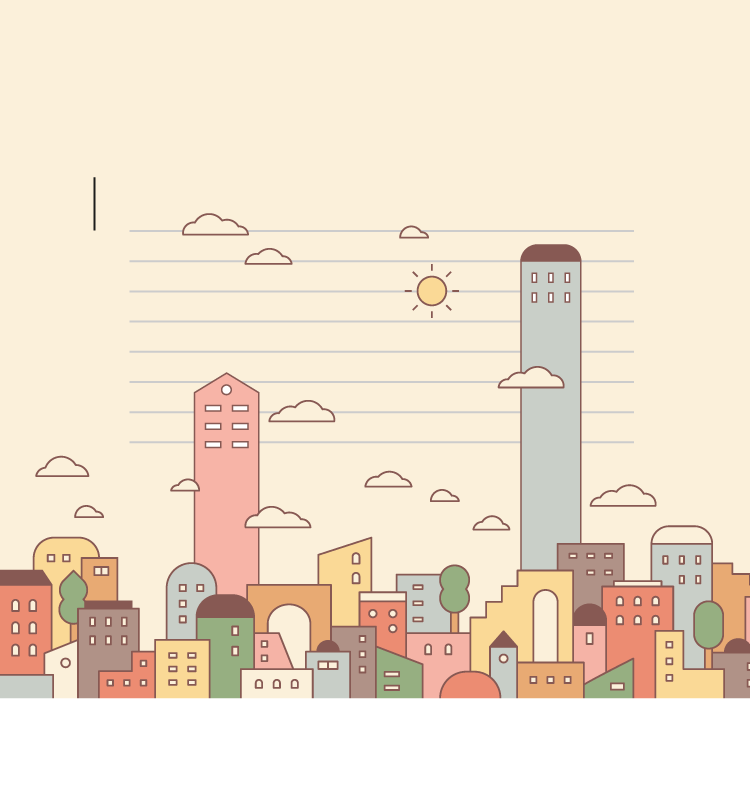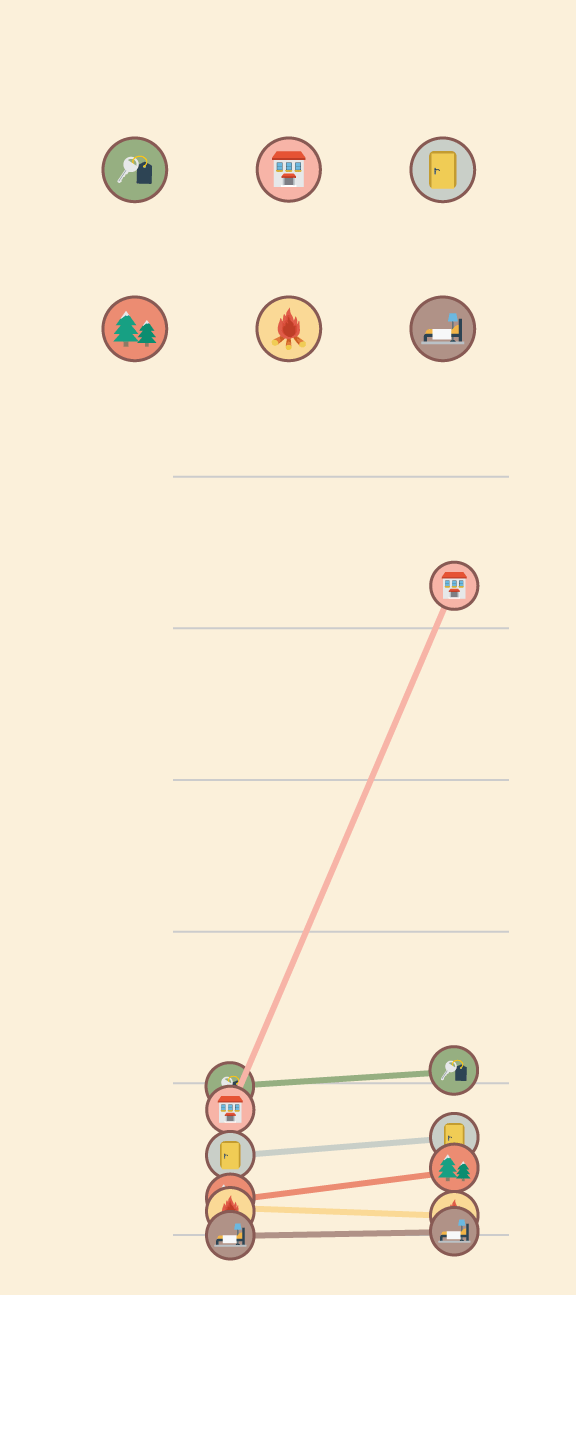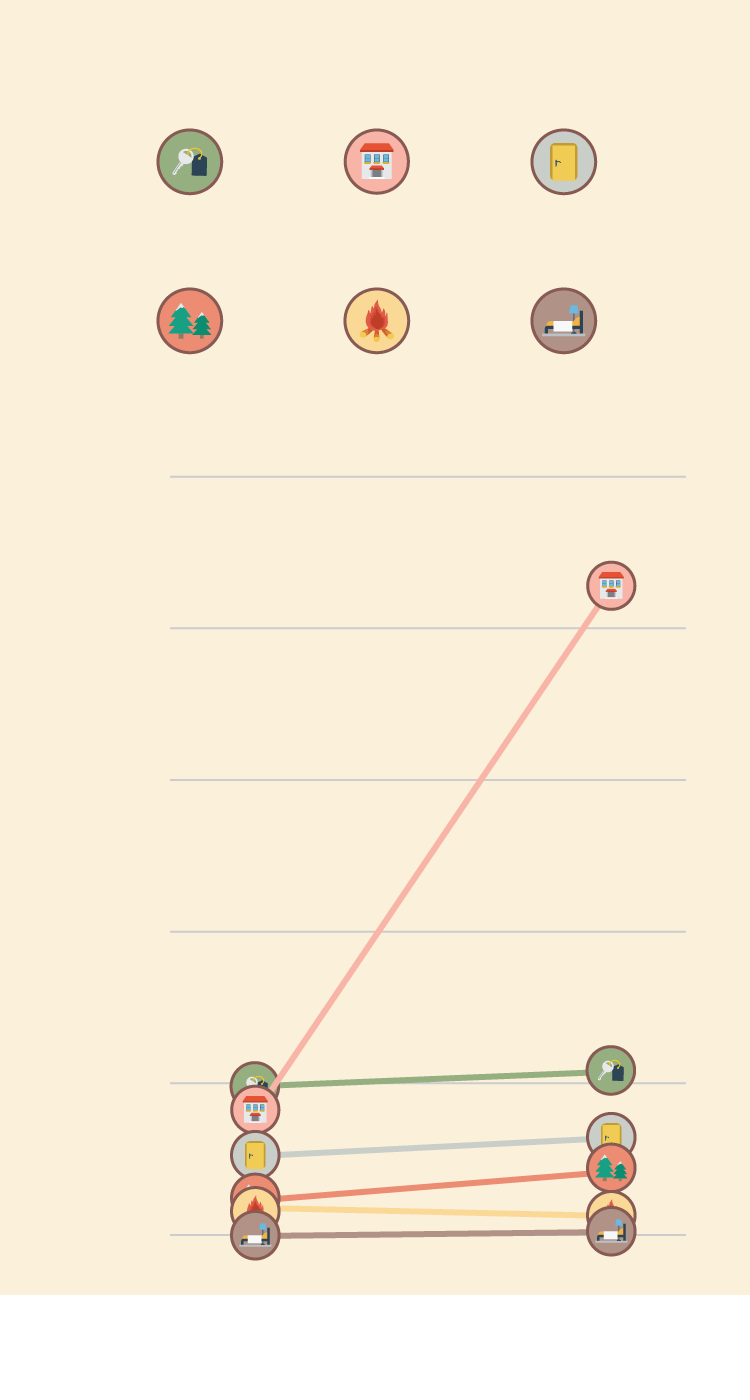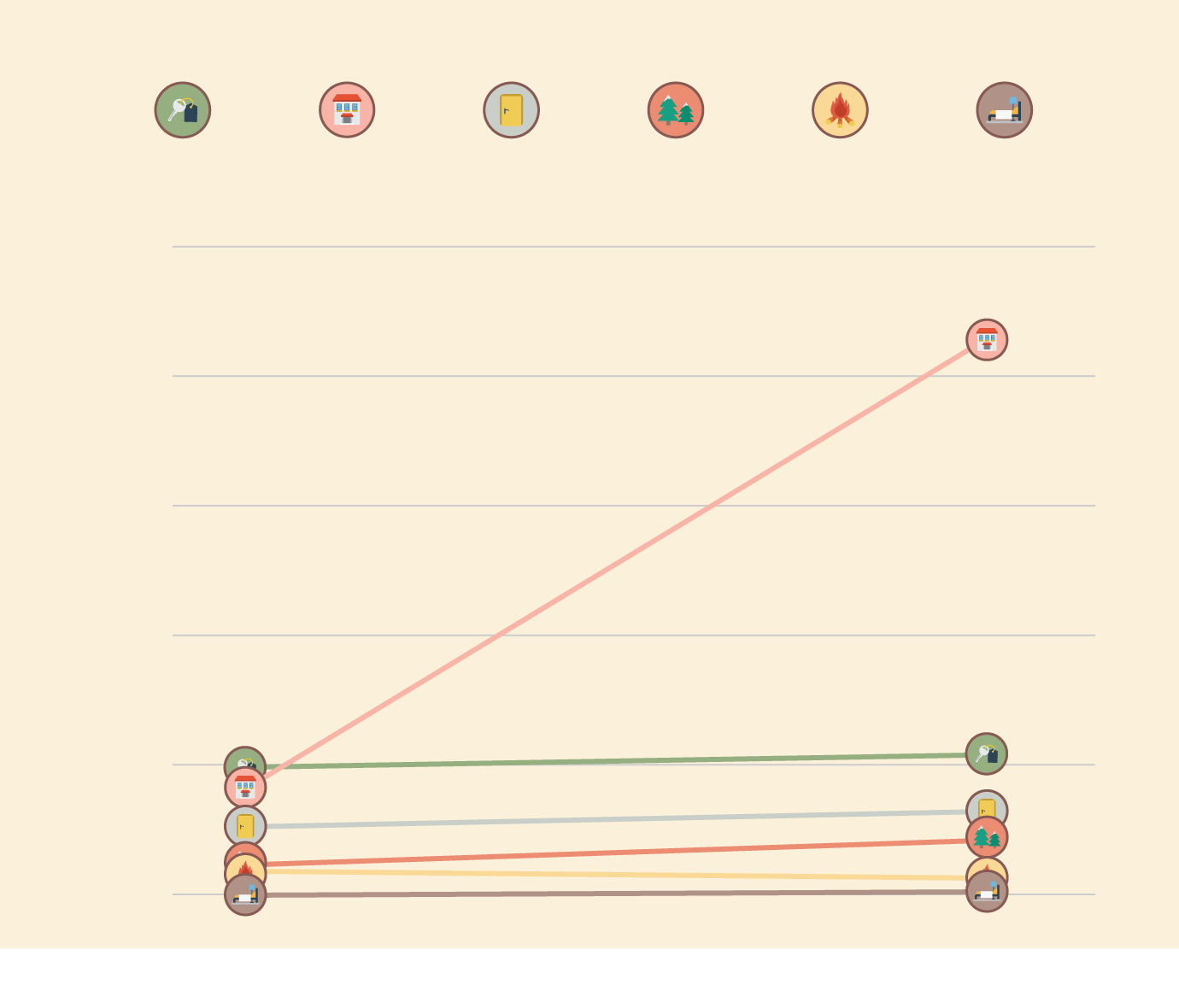Tourist accommodation available on Costa del Sol triples in just eight years
Private holiday rentals are behind the growth in Malaga province’s capacity, which is now close to 660,000 beds
The Costa del Sol and Malaga province’s ability to accommodate tourists continues to set new records. After another year with an increase in the number of beds for people to sleep in, the popular Spanish holiday destination has now tripled the accommodation beds on offer in just eight years.
The surge is down to the unstoppable growth of private, holiday lets - those sold largely over online platforms such as Airbnb. These were first required to be formally registered in Andalucía in 2016, a date that coincides with the start of this boom period.
In 2016 the total accommodation in the province - hotels, self-catering apartment blocks, rural houses, campsites and the first properly registered private holiday rental properties - amounted to 210,000 beds. Last year closed with almost 660,000, according to the Costa del Sol tourist board. It uses the Andalusian government’s tourism registry as its source for the data.

Evolución de las plazas ofertadas
en establecimientos turísticos
de la provincia
Miles de plazas
2024
659.030
600
2016
400
210.561
200
0
Fuente: RTA, Consejería de Turismo,
Junta de Andalucía
encarni hinojosa

Evolución de las plazas ofertadas en establecimientos turísticos de la provincia
Miles de plazas
2024
659.030
600
2016
400
210.561
200
0
Fuente: RTA, Consejería de Turismo,
Junta de Andalucía
encarni hinojosa

Evolución de las plazas ofertadas en establecimientos turísticos de la provincia
2024
659.030
700.000
600.000
500.000
400.000
2016
300.000
210.561
200.000
100.000
0
Fuente: RTA, Consejería de Turismo, Junta de Andalucía
encarni hinojosa
What is driving this unprecedented upturn? The data gives the answer: the letting out of private homes to tourists is the star of this new scenario. That newcomer category of accommodation has been gaining so much ground that it now accounts for 65 per cent of the total number of beds for tourists in Malaga province including the Costa del Sol. The remaining 35 per cent is shared between hotels, which lost their traditional leadership years ago, officially-rated self-catering apartment blocks, rural houses and campsites.
The statistics also show how these other categories of accommodation have been growing very slightly compared to increases of almost 20 per cent last year in the number of beds for tourists in private holiday lets - or 49 per cent if we look back four years.
These increases have meant that the Costa del Sol has beaten its record of beds on offer every year since 2019, excluding the Covid pandemic. Experts point out that this would not have been possible if it was left just to hotels, as these require longer lead times to get up and running as well as more significant investments.

Plazas ofertadas en la provincia por
tipo de establecimiento turístico
Hoteles
Viviendas turísticas
Apartamentos turísticos
Alojamientos rurales
Campa-
mentos
Hostales y
pensiones
500.000
2024
426.364
400.000
300.000
200.000
2017
100.000
84.200
0
Fuente: RTA, Consejería de Turismo,
Junta de Andalucía
encarni hinojosa

Plazas ofertadas en la provincia por
tipo de establecimiento turístico
Hoteles
Viviendas turísticas
Apartamentos turísticos
Alojamientos rurales
Campamentos
Hostales y
pensiones
500.000
2024
426.364
400.000
300.000
200.000
2017
100.000
84.200
0
encarni hinojosa
Fuente: RTA, Consejería de Turismo,
Junta de Andalucía

Plazas ofertadas en la provincia por tipo de establecimiento turístico
Hoteles
Viviendas turísticas
Apartamentos turísticos
Alojamientos rurales
Campamentos
Hostales y
pensiones
500.000
2024
426.364
400.000
300.000
200.000
2017
100.000
84.200
0
Fuente: RTA, Consejería de Turismo, Junta de Andalucía
encarni hinojosa
Back in March 2017, SUR reported that the growth in the two official categories of self-catering accommodation regulated by the Junta de Andalucía had seen hotels knocked off the top spot for number of beds on the Costa del Sol just ten months after the registration rule for private lets came in.
There are two categories of self-catering accommodation which the Junta registers. On the one hand, there is the very long-standing category of officially rated apartment blocks or groups of apartments (known as ‘apartamentos túristicos’ and often rated with a key symbol). On the other hand is the much more controversial, newcomer category of private holiday lets, including flats and villas. (‘vivienda de uso túristico’).
By 2017, the number of beds in these two categories of self-catering accommodation had already exceeded the number of hotel beds, even though the latter had almost 100,000 of them.
This change was down to the avalanche of private tourist homes that had been forced to officially register their activity when the new category was created. Almost overnight, this injected 48,881 beds into the market in the province, which were added to the almost 55,000 also available in blocks of formally rated self-catering apartments. and which raised the supply of these two booming categories of accommodation to more than 103,000 beds.
Fast forward to the end of 2024 and the Costa del Sol tourist board estimates that there are 88,629 properties across all categories offering a bed for the night in the province, with a total of 659,030 beds, representing increases of 18 per cent and 12.7 per cent respectively compared to last year. Of this total volume of 659,030 beds, 426,364 beds are in the 80,435 private holiday lets (whether houses or flats); 101,141 are in hotels and 63,666 in the longer-established category of whole blocks or groups of self-catering apartments.
Meanwhile, the hotel supply has virtually stagnated, with small increases: going from 521 hotels in 2020 to 541 at present, adding just 4,549 beds in that period, that is, an increase of 4.5 per cent.
It has only taken six years to double the amount of official available beds in Malaga province. 2018 ended with 300,000 compared to the more than 600,000 now, a record reached despite the authorities trying to put the brakes on the Airbnb-style private holiday lets.
Putting the brakes on
Last February, the Junta de Andalucía regional government approved a new decree with cross-party support. This raised the bar for registering a private property for holiday rental and gave local councils the tools to limit the spread of this type of accommodation in their areas.
A few months later, it was Malaga city council that took the initiative by limiting the use of private homes for rental to those with independent access (in other words, their own front door to the street) and own electricity and water services. This measure was announced in June last year and came into force immediately for all properties registered after the new Junta regulation, that is, last February.
In the meantime, in June, the supply of holiday homes in the province grew by 7.1 per cent again, and similar initiatives were added to Malaga’s proposal in, among others, Torremolinos, Ronda, Marbella, where they are studying a way forward, and in Alhaurín de la Torre, where last November it was agreed to cap this type of tourist accommodation to ease pressure on housing stock for locals.
Last month, Malaga city hall finally gave the go-ahead to town planning changes to ban any new private flats or houses being registered as tourist accommodation in 43 areas of the city which it considered to be saturated with them. This measure, which is still technically to come into force, will be tantamount to a declaration of war on this type of accommodation in the capital of the Costa del Sol.
The regional government, which is responsible for keeping the register of all types of tourist accommodation, is preparing to implement a new system to prevent the official listing of properties with bans from town hall such as the one in Malaga.
Regional officials have also announced they are working on a new regulation to discourage the registration of properties for tourist purposes of which it is estimated, based on data provided by holiday rental platforms, that 30 per cent do not currently operate in the market but which have been registered to circumvent possible bans from both town halls and the the residents in the blocks themselves.
Real estate consultants say some of the properties that are registered are being protected by owners knowing that they are not going to rent them out, but with the aim of increasing the future value of the properties as they are no longer considered homes by investors, who see them as businesses.
Unexpected side effects
Holiday rental consultants have already pointed out that these first municipal crackdowns will not have any immediate impact either in terms of property deregistrations or in terms of stopping new registrations. They add that the effects of these council decisions will not be felt in the market for at least two or three years.
Remy Dubois, CEO, owner and general manager of an agency specialising in high-end tourist properties, said, “What will also happen is that the value of the flats that have a tourist housing licence in force will shoot up as in Barcelona, with rises of 50 per cent. In the rest of the properties, prices will stabilise.”
So much so that since these first limitations, month after month, the statistics of the Andalusian tourist property register have shown that the volume of properties registered for holiday rentals in the province continues to rise, with monthly growth of around 10% since June last year.
President of the Andalusian association of holiday rental professionals (AVVA-Pro), Juan Cubo, commented, “The authorities are under pressure from the public and are trying to take measures for appearances’ sake. Without holiday rentals, half of the restaurants would have to close and taxi drivers would be out of work. The authorities know they are acting unlawfully, which is why I encourage everyone to fight for their rights.”

